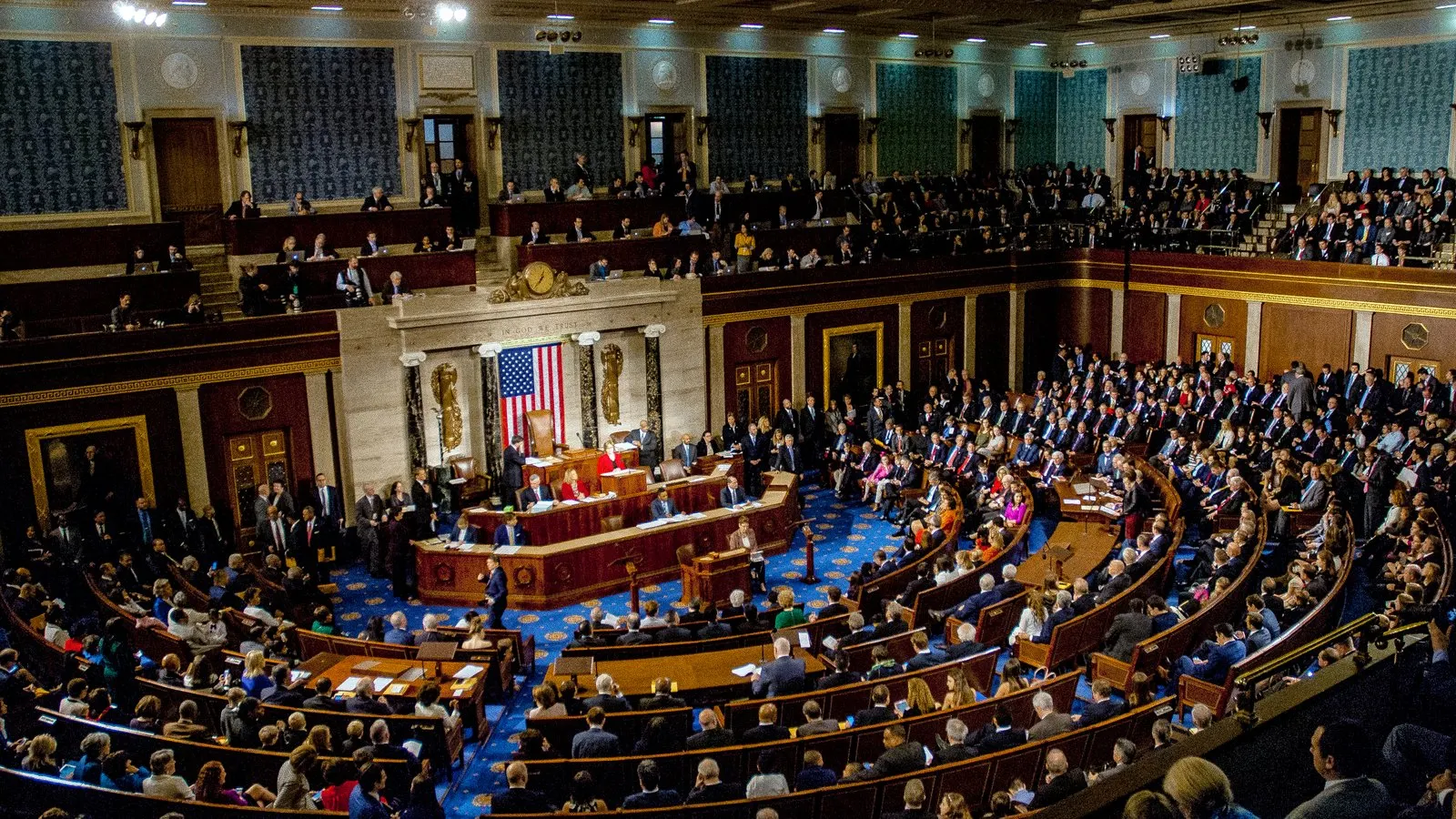Washington, D.C. — The US Senate passes stablecoin bill with bipartisan support, moving the country closer to national cryptocurrency regulation. The legislation focuses on stablecoins, digital currencies that are tied to the value of the U.S. dollar to minimize price swings.
On Monday night, senators voted 66–32 to approve the legislation. While most Republicans voted in favor, 16 Democrats also supported the bill.
Stablecoin Bill Sets National Regulatory Framework
The stablecoin bill, introduced by Republican Senator Bill Hagerty of Tennessee, marks the first major attempt to establish a national framework for stablecoin issuers. The Senate passed the bill in a 66–32 vote on Monday night. Most Republican senators supported the bill, while 16 Democrats also voted in favor, helping it reach the required 60-vote threshold.
First National Framework for Stablecoins

The United States Congress recently made an attempt
The bill, introduced by Senator Bill Hagerty of Tennessee, creates the first nationwide rules for stablecoin issuers. The crypto industry has long called for clear regulation, and this bill represents a significant milestone.
After days of tense negotiations, lawmakers made key revisions to gain enough Democratic support. As a result, the bill reached the 60-vote threshold needed to advance.
Mixed Reaction From Democrats
Democratic Senator Kirsten Gillibrand of New York played a leading role in the talks. She described the bill as a fair and balanced starting point for broader crypto regulation. She also expressed hope that it would become law soon.
However, several Democrats voiced concerns. They warned that crypto technology could be exploited by political actors, including members of the Trump family. Others criticized the bill for not doing enough to protect consumers.
Strong Opposition From Warren
Senator Elizabeth Warren of Massachusetts delivered a sharp critique before the vote. She argued the bill would weaken financial oversight and allow bad actors to manipulate the system. According to her, the bill threatens national security, financial stability, and consumer protection.
Despite these warnings, some Democrats supported the bill anyway. Senator Mark Warner of Virginia, for example, acknowledged the risks. However, he said the technology is here to stay, and the U.S. must lead in shaping its future.
Republican Dissent and a Surprise Flip
Meanwhile, not all Republicans were on board. Senators Rand Paul of Kentucky and Jerry Moran of Kansas voted against the bill. They feared it would lead to unnecessary government interference in free markets.
Democratic Senator Andy Kim of New Jersey also broke ranks. Although he had previously supported the bill in committee, he voted “no” on the Senate floor. Just before the vote, he was seen reviewing final documents with Senators Hagerty and Gillibrand.
What Happens Next
The Senate will take a final vote after its Memorial Day recess. If passed again, the bill will move to the House of Representatives, where a similar version has already cleared a key committee.
If both chambers approve it, the legislation will go to President Donald Trump for signing. This could mark a turning point for digital asset regulation in the United States.
A Pivotal Moment for Crypto Policy
Overall, the bill lays the groundwork for how stablecoins will be managed going forward. Although it raises new concerns about privacy and political influence, it represents a crucial step toward clarity in the fast-moving world of digital currency.
Conclusion: A Turning Point for Cryptocurrency Oversight
As the US Senate passes a stablecoin bill with bipartisan support, it sets the stage for national regulation of stablecoin issuers. The bill could become the foundation for future rules governing digital assets, addressing key concerns around innovation, consumer protection, and political influence.








Leave a Reply